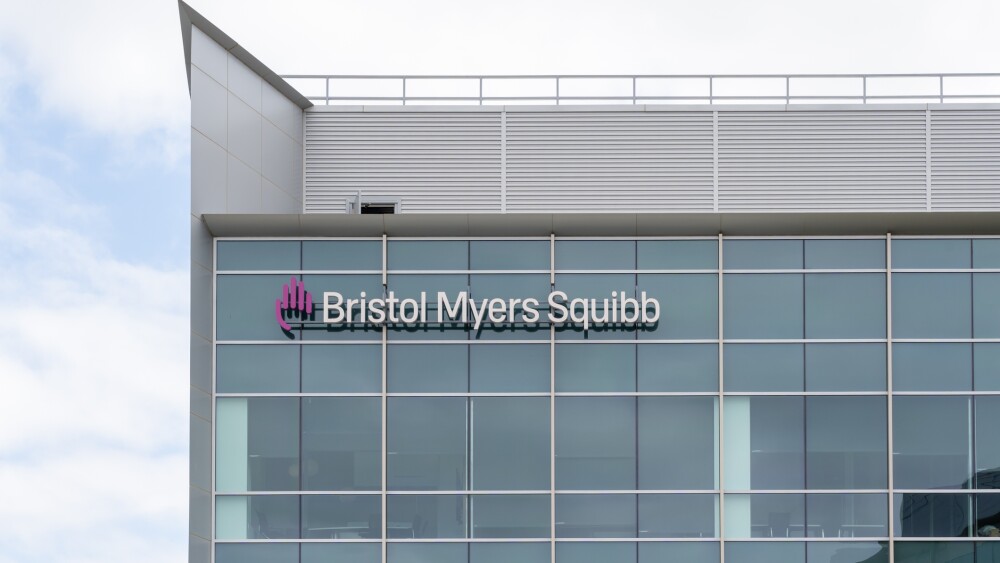STAMFORD, Conn., Nov. 15 /PRNewswire/ -- Purdue Pharma L.P. today announced a pilot program to integrate unique radio frequency identification (RFID) tags on labels for 100-tablet bottles of OxyContin(R) (oxycodone HCl controlled-release) Tablets shipped to two of its largest customers. Purdue is one of the first pharmaceutical companies to provide fully integrated, anti-counterfeiting packaging designed to protect pharmaceutical products against counterfeiting and diversion through individual electronic "license plates." It is also the first to comply with the multi-layered approach, including RFID, to combat counterfeit drugs recommended today by the FDA's Counterfeit Drug Task Force. The initial shipments of the RFID-tagged bottles will be sent this week to Wal-Mart and H.D. Smith, the seventh-largest drug wholesaler in the U.S.
RFID involves the placement of small electromagnetic chips on cartons, pallets, and individual product labels. This allows manufacturers and wholesalers to track products more closely than ever before as they move throughout the distribution process.
"Our objective in implementing these security features is to deter counterfeiting, reduce diversion, and help ensure the authenticity, safety, and integrity of our products," said Aaron Graham, Vice President and Chief Security Officer for Purdue Pharma. "RFID technology provides the pharmaceutical industry with the ability to create an electronic drug pedigree, or tracking mechanism, that will lead to greater supply chain security and patient protection against counterfeit drugs."
A drug "pedigree" is the paperwork that follows products from the manufacturer, to wholesaler, to pharmacy. It is more difficult to track the authenticity of drugs with incomplete pedigrees. Purdue's initiative addresses a number of consumer safety issues, including the redistribution of counterfeit, adulterated, re-labeled, and diverted prescription drugs of unknown authenticity, efficacy, and safety. Based on the availability of RFID tags, which are assembled in Maryland and Germany, Purdue plans to expand the implementation of RFID labels for all bottles of OxyContin Tablets.
"This is an outstanding collaboration between a manufacturer and distributor which will help protect the nation's supply of medicines and help ensure that patients receive only authentic, efficacious, and safe products," said John Burke, Vice President, National Association of Drug Diversion Investigators and Coordinator, Southern Ohio Prescription Drug HIDTA (High Intensity Drug Trafficking Area).
"RFID technology is an important new tool that will help our community pharmacists ensure the safety and authenticity of the products they dispense to patients," said Bruce Roberts, Executive Vice President and CEO of the National Community Pharmacists Association (NCPA), which represents 70,000 independent pharmacists.
There are no privacy issues associated with RFID tags attached to the labels of commercial OxyContin bottles. The RFID tag is passive (as opposed to emitting a signal) and can only be read with a special scanner held within inches of the label. Purdue intends to donate 100 hand-held scanners, which can be used to read all packages utilizing similar RFID technology, to major law enforcement and cargo theft investigative groups throughout the country.
The FBI Law Enforcement Executive Development Association (FBI-LEEDA) praised this donation. "The ability to track right down to the individual bottle level is a huge advancement for law enforcement," said Tom Stone, Executive Director of FBI-LEEDA. "This will provide police with a new tool to combat pharmacy crime and cargo theft."
Another level of security announced by Purdue today was the use of variable-effect, color-shifting ink in the label for OxyContin. Similar to the technology used to deter counterfeiting of U.S. currency, multi-layered visible and invisible solutions are also included in the recommendations issued today by the FDA task force. The new labels are another component of Purdue's fully integrated, anti-counterfeiting, track-and-trace initiative designed to protect patients from counterfeit, diverted, and potentially unsafe prescription medications.
The professional product labeling for OxyContin(R) Tablets contains the following boxed warning:
WARNING:
OxyContin is an opioid agonist and a Schedule II controlled substance with an abuse liability similar to morphine.
Oxycodone can be abused in a manner similar to other opioid agonists, legal or illicit. This should be considered when prescribing or dispensing OxyContin in situations where the physician or pharmacist is concerned about an increased risk of misuse, abuse, or diversion.
OxyContin Tablets are a controlled-release oral formulation of oxycodone hydrochloride indicated for the management of moderate to severe pain when a continuous, around-the-clock analgesic is needed for an extended period of time.
OxyContin Tablets are NOT intended for use as a prn analgesic.
OxyContin 80 mg and 160 mg Tablets ARE FOR USE IN OPIOID-TOLERANT PATIENTS ONLY. These tablet strengths may cause fatal respiratory depression when administered to patients not previously exposed to opioids.
OxyContin TABLETS ARE TO BE SWALLOWED WHOLE AND ARE NOT TO BE BROKEN, CHEWED, OR CRUSHED. TAKING BROKEN, CHEWED, OR CRUSHED OxyContin TABLETS LEADS TO RAPID RELEASE AND ABSORPTION OF A POTENTIALLY FATAL DOSE OF OXYCODONE.
Full prescribing information for OxyContin is available at http://www.purduepharma.com/PRESSROOM/PI/OXYCONTIN_PI.PDF.
About Purdue Pharma L.P.
Purdue Pharma L.P. and its associated U.S. companies are privately held pharmaceutical companies known for pioneering research on persistent pain. Headquartered in Stamford, CT, Purdue is engaged in the research, development, production, and distribution of both prescription and over-the-counter medicines and hospital products. Additional information about Purdue can be found at http://www.purduepharma.com/.
Purdue Pharma L.P.CONTACT: Rebecca Novak-Tibbitt, +1-203-588-8515,Rebecca.novak-tibbitt@pharma.com
Web site: http://www.purduepharma.com/




